-
 Bitcoin
Bitcoin $119100
0.00% -
 Ethereum
Ethereum $3649
-2.30% -
 XRP
XRP $3.213
-8.45% -
 Tether USDt
Tether USDt $1.000
-0.01% -
 BNB
BNB $783.2
-1.26% -
 Solana
Solana $191.1
-5.48% -
 USDC
USDC $0.9999
0.00% -
 Dogecoin
Dogecoin $0.2440
-8.65% -
 TRON
TRON $0.3103
-2.02% -
 Cardano
Cardano $0.8201
-7.68% -
 Hyperliquid
Hyperliquid $44.25
-3.09% -
 Stellar
Stellar $0.4326
-7.78% -
 Sui
Sui $3.777
-5.00% -
 Chainlink
Chainlink $18.34
-6.34% -
 Hedera
Hedera $0.2477
-8.72% -
 Bitcoin Cash
Bitcoin Cash $521.0
-0.79% -
 Avalanche
Avalanche $24.08
-6.29% -
 Litecoin
Litecoin $113.5
-6.79% -
 UNUS SED LEO
UNUS SED LEO $8.970
-0.16% -
 Shiba Inu
Shiba Inu $0.00001397
-8.55% -
 Toncoin
Toncoin $3.231
-2.27% -
 Ethena USDe
Ethena USDe $1.001
0.03% -
 Polkadot
Polkadot $4.174
-6.93% -
 Uniswap
Uniswap $10.37
-4.08% -
 Monero
Monero $317.6
-1.77% -
 Bitget Token
Bitget Token $4.720
-2.36% -
 Pepe
Pepe $0.00001290
-8.38% -
 Dai
Dai $1.000
0.02% -
 Aave
Aave $293.2
-4.95% -
 Bittensor
Bittensor $431.1
-3.60%
Can I use a VPN to trade futures on Gate.io?
Using a VPN to bypass Gate.io's regional restrictions can lead to account suspension, fund freezes, or permanent bans due to strict compliance measures.
Jul 24, 2025 at 01:15 am
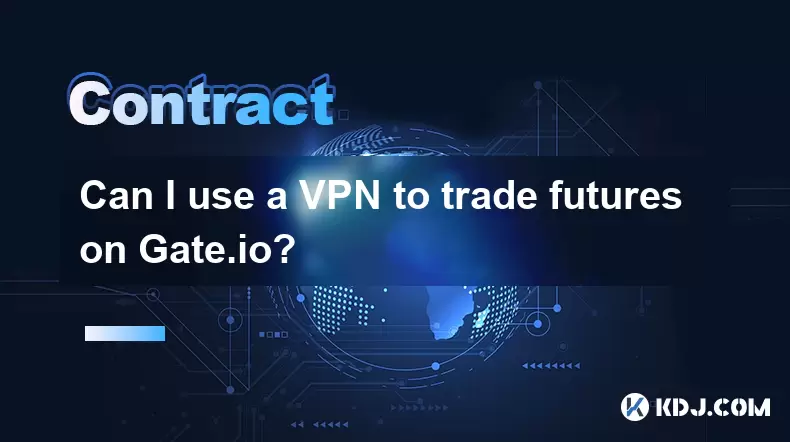
Understanding Gate.io’s Terms of Service
Gate.io, like many cryptocurrency exchanges, has strict policies regarding user access and trading activities. Before considering the use of a VPN, it is essential to review the platform’s official Terms of Service. Gate.io explicitly prohibits users from circumventing geographical restrictions using tools such as VPNs, proxies, or Tor networks. Violating this clause may result in immediate account suspension or permanent banning. The platform uses IP geolocation tracking to enforce regional compliance, particularly in jurisdictions where futures trading is restricted or unlicensed.
Why Gate.io Blocks Certain Regions
Futures trading involves derivatives, which are heavily regulated financial instruments. Gate.io must comply with local laws in each country it operates. For example, in the United States, Canada, and several EU countries, derivatives trading is either restricted or requires specific licensing. If your real IP address originates from a region where futures are not permitted, Gate.io will block access to that feature—even if you’re physically located elsewhere. Using a VPN to mask your true location does not override legal compliance requirements; the exchange still holds the right to terminate accounts found violating these rules.
Technical Detection Methods Gate.io Uses
Gate.io employs advanced detection systems beyond simple IP checks:
- IP address blacklists for known data centers and commercial VPN providers
- Behavioral analytics to detect anomalies like rapid location switching
- Device fingerprinting to identify repeated logins from different regions on the same device
- Timezone mismatches between your IP location and device settings
If any of these signals raise suspicion, Gate.io may trigger manual review or automated lockouts. Even if a VPN initially works, continued use increases the likelihood of detection over time. Once flagged, you may be required to submit KYC documents or lose access to your futures positions entirely.
Step-by-Step Guide to Check If Your Setup Triggers Alerts
Before attempting to trade futures via a VPN, test your configuration thoroughly: - Disconnect from your current network and clear browser cache
- Connect to a reputable non-datacenter-based residential IP (some premium services offer this)
- Visit [https://ipleak.net](https://ipleak.net) to check for DNS, WebRTC, or IPv6 leaks
- Ensure your device’s timezone matches the location of the connected IP
- Log into Gate.io using incognito mode and verify if futures are accessible
- Monitor for any pop-up warnings or email alerts from Gate.io about “suspicious activity”
Each step must pass without anomalies. A single mismatch—such as a WebRTC leak revealing your real IP—can trigger immediate account scrutiny.
What Happens If You Get Caught?
Using a VPN to bypass regional restrictions carries serious consequences: - Temporary suspension of futures trading privileges
- Mandatory KYC re-verification with additional documentation
- Freezing of funds until compliance review is complete
- Permanent account closure if repeated violations occur
Gate.io does not distinguish between intentional and accidental violations. If your account shows signs of being accessed through a prohibited jurisdiction, even once, the system flags it automatically. Recovery processes can take weeks, during which your open futures positions may be liquidated due to margin calls or market volatility.
Legal Alternatives to Using a VPN
If you’re in a restricted region but wish to trade futures: - Relocate to a country where Gate.io offers futures legally (e.g., Singapore, UAE)
- Use a compliant exchange licensed in your current jurisdiction (e.g., Binance Futures in supported regions)
- Apply for residency-based verification if you have legal ties to an allowed country
- Contact Gate.io support directly to explain your situation—some cases allow exceptions based on residency proof
These alternatives ensure you remain within the bounds of both platform policy and local law. Attempting to hide your location via a VPN undermines trust and exposes you to avoidable risk.
Frequently Asked Questions
Q: Will using a free mobile hotspot instead of a home Wi-Fi network help avoid detection?
No. Gate.io tracks IP geolocation regardless of network type. Mobile carriers often assign IPs tied to specific regions. Switching networks doesn’t change your actual location or bypass geo-restrictions.Q: Can I use a VPS (Virtual Private Server) instead of a consumer-grade VPN?
No. Gate.io blocks known VPS providers (e.g., AWS, DigitalOcean, Linode). These IPs are easily identifiable and treated the same as commercial VPNs. Account termination risk remains high.Q: What if I’m traveling and temporarily connect from a restricted country?
Gate.io may allow short-term access if your account history shows consistent activity from a permitted region. However, opening new futures positions while connected from a restricted IP is strongly discouraged. Close existing positions before traveling.Q: Does Gate.io monitor my location after I log in?
Yes. The platform continuously logs IP addresses during active sessions. If you switch locations mid-session—such as turning on a VPN after logging in—it may trigger an instant session timeout or account flag.
Disclaimer:info@kdj.com
The information provided is not trading advice. kdj.com does not assume any responsibility for any investments made based on the information provided in this article. Cryptocurrencies are highly volatile and it is highly recommended that you invest with caution after thorough research!
If you believe that the content used on this website infringes your copyright, please contact us immediately (info@kdj.com) and we will delete it promptly.
- XRP, Solana, and Institutional Adoption: A New Era for Crypto?
- 2025-07-24 11:10:12
- Dogecoin, Remittix, and Crypto Protocols: The Evolution of Digital Finance
- 2025-07-24 10:50:12
- BlockDAG, Hedera, and Stellar: Charting the Course for Crypto's Future
- 2025-07-24 10:50:12
- BlockDAG's No-Vesting Edge: Can It Outpace Cardano's Price?
- 2025-07-24 11:10:12
- South Korea's Credit Card Industry Embraces Stablecoin Regulations: A New Era?
- 2025-07-24 10:30:12
- Bitcoin, SHIB, and Institutional Momentum: Decoding Crypto's 2025 Trajectory
- 2025-07-24 11:15:12
Related knowledge
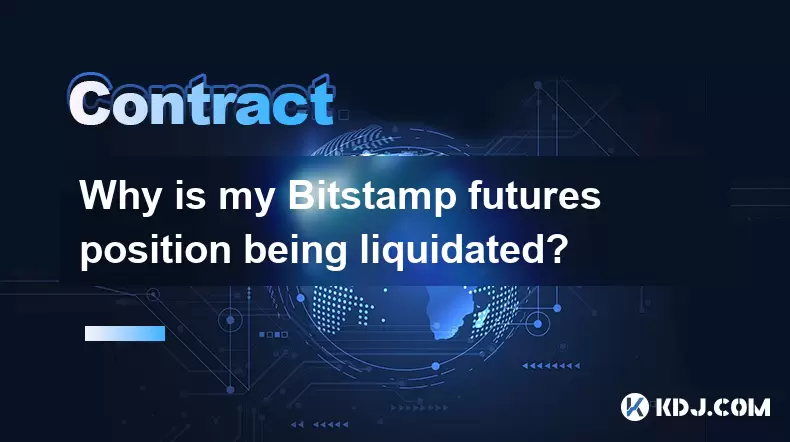
Why is my Bitstamp futures position being liquidated?
Jul 23,2025 at 11:08am
Understanding Futures Liquidation on BitstampFutures trading on Bitstamp involves borrowing funds to open leveraged positions, which amplifies both po...
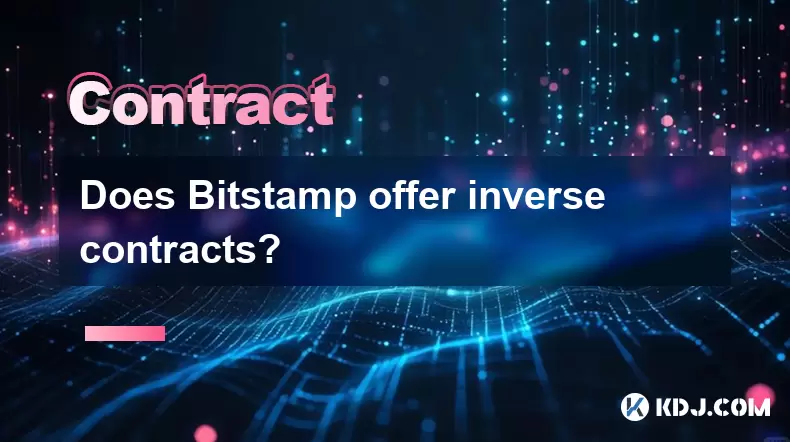
Does Bitstamp offer inverse contracts?
Jul 23,2025 at 01:28pm
Understanding Inverse Contracts in Cryptocurrency TradingIn the realm of cryptocurrency derivatives, inverse contracts are a specific type of futures ...
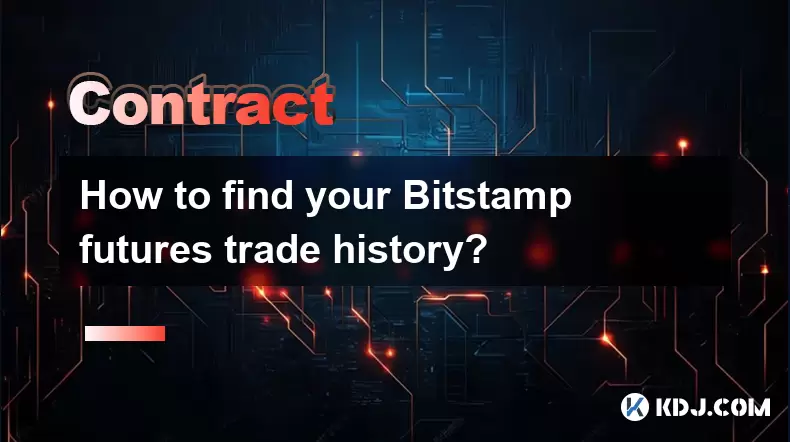
How to find your Bitstamp futures trade history?
Jul 23,2025 at 08:07am
Understanding Bitstamp and Futures Trading AvailabilityAs of the current state of Bitstamp’s service offerings, it is critical to clarify that Bitstam...
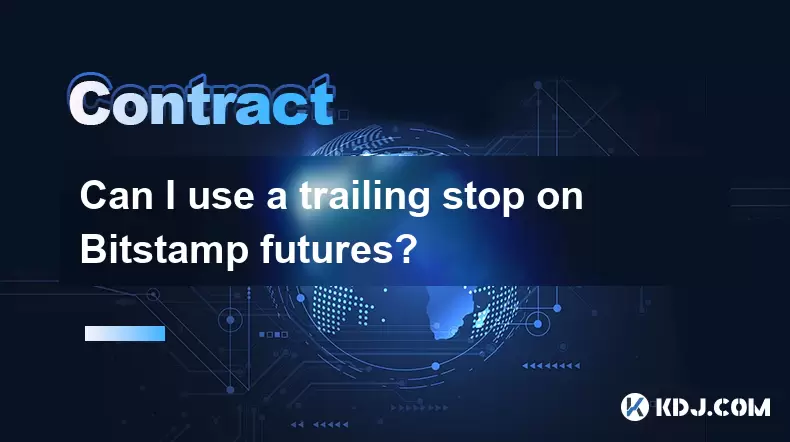
Can I use a trailing stop on Bitstamp futures?
Jul 23,2025 at 01:42pm
Understanding Trailing Stops in Cryptocurrency TradingA trailing stop is a dynamic type of stop-loss order that adjusts automatically as the price of ...
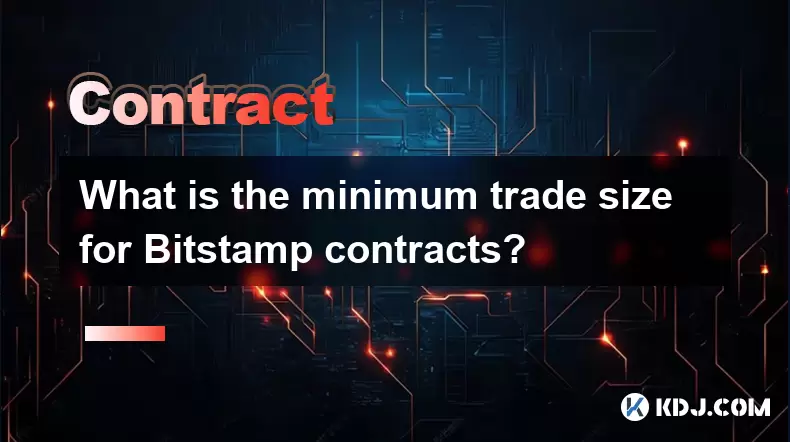
What is the minimum trade size for Bitstamp contracts?
Jul 23,2025 at 07:14pm
Understanding Bitstamp and Its Contract OfferingsBitstamp is one of the longest-standing cryptocurrency exchanges, established in 2011, and known for ...
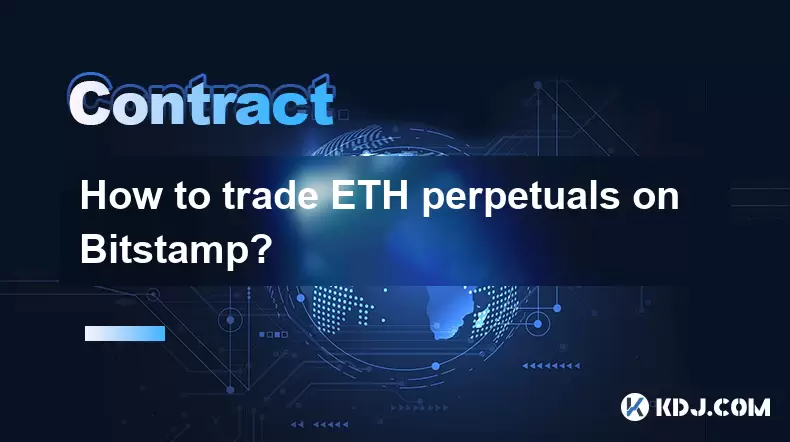
How to trade ETH perpetuals on Bitstamp?
Jul 23,2025 at 03:28am
Understanding ETH Perpetual ContractsETH perpetual contracts are derivative products that allow traders to speculate on the price of Ethereum without ...

Why is my Bitstamp futures position being liquidated?
Jul 23,2025 at 11:08am
Understanding Futures Liquidation on BitstampFutures trading on Bitstamp involves borrowing funds to open leveraged positions, which amplifies both po...

Does Bitstamp offer inverse contracts?
Jul 23,2025 at 01:28pm
Understanding Inverse Contracts in Cryptocurrency TradingIn the realm of cryptocurrency derivatives, inverse contracts are a specific type of futures ...

How to find your Bitstamp futures trade history?
Jul 23,2025 at 08:07am
Understanding Bitstamp and Futures Trading AvailabilityAs of the current state of Bitstamp’s service offerings, it is critical to clarify that Bitstam...

Can I use a trailing stop on Bitstamp futures?
Jul 23,2025 at 01:42pm
Understanding Trailing Stops in Cryptocurrency TradingA trailing stop is a dynamic type of stop-loss order that adjusts automatically as the price of ...

What is the minimum trade size for Bitstamp contracts?
Jul 23,2025 at 07:14pm
Understanding Bitstamp and Its Contract OfferingsBitstamp is one of the longest-standing cryptocurrency exchanges, established in 2011, and known for ...

How to trade ETH perpetuals on Bitstamp?
Jul 23,2025 at 03:28am
Understanding ETH Perpetual ContractsETH perpetual contracts are derivative products that allow traders to speculate on the price of Ethereum without ...
See all articles

























































































